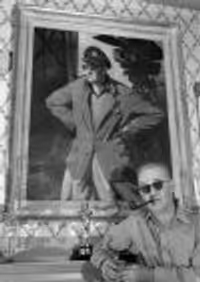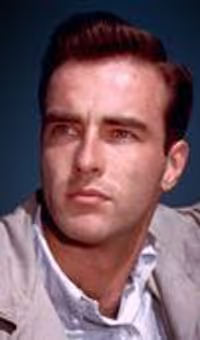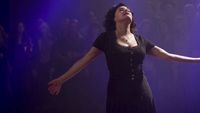INCEPTION
#50INCEPTION
Posted: 7/17/10 at 11:52pm
The point was to put aside what we perceive as reality and focus on the truth that's in our minds at all time even when we're dreaming and it's the subconscious parts of our mind that actually dictates the eventual outcome in what we build our reality upon in the real world while all the time creating our own destiny as it should be but never can be since we limit our minds as to the perception of what we are dreaming, hence we can do nothing but watch our own fate turn into reality.
Duh.
Updated On: 7/17/10 at 11:52 PM
#52INCEPTION
Posted: 7/18/10 at 12:22am
"cobb and his wife knew they were forging a world. why did it just have to be a city like any other in the US or the world?
why do the shores of your subconscious have to literally be a seashore?"
The subconscious was in clear decay so I would not be surprised if it was a lot bigger. Like a reverse-Solaris (Nolan had to have drawn a lot from Tarkovsky films).
Cobb's biggest weakness was drawing from memories that continued to haunt him. Memories are experiences. Cobb's life seemed very limited, notice how diverse Mal's previous homes were compared to the all large, indistinguishable buildings. You could definitely tell who designed what.
Also, like spider said, to make the dream seem real it has to look atypical, look boring.
It may seem that the stakes are low but this is actually using Inception beyond just testing. I doubt Fisher's whole situation was as big Ken Watanabe's character was saying but it needed to be used at some point but there are of course bigger, riskier ways to use Inception. I think even Cobb, considering his whole issues, would not have done something bigger even if he had a personal stake in it. At least that is what I got out of it.
Updated On: 7/18/10 at 12:22 AM
#53INCEPTION
Posted: 7/18/10 at 12:24am
bethnor - I think you're completely wrong about it not mattering whether or not the end is a dream - I think that point is what the entire perception the audience has of the movie necessarily hinges on: what is reality and what isn't? How much of what happened came from Cobb and how much, if any, was reality? If the end was indeed a dream, how much of what we saw WAS a dream? The more I think about the movie, the more I think MOST of it was actually a dream, and it was Cobb learning to deal with it. I haven't fully fleshed this out, but I think the only "reality" was that Mal and Cobb had the dream as described and went into limbo. I think SHE kicked herself out of it, and everything else is Cobb's construct of how to deal with it. So much of what's presented in the movie as reality just seems dreamlike -- his getting from one place to another with no transition (as he describes dreams are - we're led to think it's movie convention, but why does it have to be?), his incredible escape from unnamed attackers in Mombasa - through the impossibly tight wall where Saito just happened to be waiting to save him, the fact that every piece of evidence we're given about how the dreams work COMES from Cobb himself.
Two other things that keep rolling around in my head: 1)the beginning of the movie with old Saito blends almost seamlessly into the extraction scene with young Saito. In the first scene, old Saito HOLDS Cobb's totem. He tells Cobb to take a leap of faith - just like Mal tells him. I think that opening sequence and these strange things are to tell us that the whole thing is a connected dream. Cobb created the whole thing in his head to get him out of the limbo he had created with Mal. 2)Something else I think CAN'T be a coincidence: notice the music used to pull someone out of a dream -- Edith Piaf. Really? Of all the music that could have been chosen, they chose a song sung by the woman who Marion Cotillard won an Oscar for playing??? I think that could be a clue that all that we're seeing there IS a dream from Cobb's perspective.
Or that is just one hell of an inside joke....
#55INCEPTION
Posted: 7/20/10 at 7:45pm
I loved the Edith Piaf music choice in this film. It was really pulling me out of the movie into my own "reality" knowing that Cotillard won her Oscar for it. I don't think this was an accident at all.
I'm just grateful Nolan picked that over Celine Dion's "My Heart Will Go On."
By the way, I loved the film. Perfect? No. But a refreshing ride. Part action-adventure, part psychological thriller.
Can't wait to see it again!
blocked: logan2, Diamonds3, Hamilton22
#56INCEPTION
Posted: 7/22/10 at 7:38am
Saw it last night and liked it a lot.
There is a lot of exposition required and I felt that it came at the expense of any real character development. It was an intellectual exercise and could have used more genuine feeling, imo.
Having said that, I found it exhilarating at times. This movie most definitely needs to be seen twice. Nolan does an incredible job directing. The composition and pacing is near perfect. Some of his influences (or homages if you prefer) are a little heavy handed, but he still makes it a completely unique movie.
Q, there are also some thematic meditations on guilt and how it can influence a person's life and actions on a subconscious level.
It also raises questions about reality vs. perception. So there was some meat on this bird. And it spurred conversation amongst the me and my friends afterward.
I thought the cast was great if not "award worthy". Leo and Gordon-Leavitt (both of whom I love) were to my surprise not the standouts. Cillian Murphy, Ellen Page, and Tom Hardy each made a far more lasting impression on me. I also thought that Ken Watanabe was excellent.
So, visually and intellectually stunning, but emotionally flat.
Still, I highly recommend it.
Regarding the end: **********SPOILER***********
I thought it was reality b/c of the last shot of the spinning
totem. Earlier in the film Leo mentions that being able to touch and see your totem is how you can ultimately determine whether you are in a dream or in real life.
The fact that his children haven't aged is odd however. Still, I think he truly was back home in reality.
#57INCEPTION
Posted: 7/22/10 at 8:55am
SPOILER *************
But Taz, his totem keeps spinning in the last shot and never stops. He walks away, thinking it has fallen over (meaning it was real), but it hasn't. That's proof that it's a dream. If it were reality, the totem would fall over fairly quickly, because it was weighted to fall a certain way. He describes that earlier in the film.
I agree with you about the limited character development. Only Leonardo and (a terrific) Marion Cotillard as the femme fatale have anything substantial to sink their teeth into. It's to everyone else's credit that I cared enough about these characters to see them through the complex (and borderline baffling) journey.
This felt a lot like Mission Impossible with the characters each helping with their personal expertise on a piece of the puzzle. The old TV show never developed character much either, but still managed to entertain and engage audiences. I enjoyed this movie immensely, even with a caveat or two.
Speaking of ...
My biggest head-scratching moment was near the end, when the exact same scene was playing out from the beginning of the film. If this were reality, was the intial dream at the beginning a psychic premonition of what was to come?
That's why I buy that the entire film is a dream, and it was cycling around to the beginning again. That would explain the repated scene.
And the eternally spinning totem was the proof that he was still dreaming.
blocked: logan2, Diamonds3, Hamilton22
wonkit
Broadway Legend Joined: 9/30/08
#59INCEPTION
Posted: 7/22/10 at 9:50am
SPOILER*********
The ending - you see the top continuing to spin, but the soundtrack suggested to me the noise a top makes as it slows down and begins to fall but the camera cuts away. So I think you are meant to decide the reality of the ending for yourself. That reminded me of the ending of 2001: A Space Odyssey, where the meaning of the space child and its connection to Dave is left for you to decide. I definitely want to see this again!
#60INCEPTION
Posted: 7/22/10 at 9:54am
Oh yea, I have to see it again. The first 20 minutes before any of the "rules" are explained I had no idea what was happening.
Then on the way home I wondered why the original architect chose a city during a riot for the landscape. That seemed a little random, but I know nothing in this movie is random.
#61INCEPTION
Posted: 7/22/10 at 9:59am
****SPOILER****
You definitely hear the totem start to wobble before the screen cuts to black indicating that the totem might topple. I'm pretty sure Nolan left it ambiguous on purpose.
The stronger indication to me that it's a dream is that the kids haven't aged, and are wearing the same clothes and in the same place as they are when Cobb dreams about them. When he is talking to them on the phone earlier in the film one of them is clearly older.
#62INCEPTION
Posted: 7/22/10 at 10:40am
CONTINUED SPOILER*******
I also think that Nolan left the film intentionally ambiguous, because it continues the theme of the movie that you sometimes don't know if what you are experiencing in a dream is, in fact, reality, or just a very real seeming dream.
END SPOILER***************
Tazber- that's how I felt about the film - Visually and intelectually amazing, but emotionally flat, though it could have been so much more given the backstory between Cotillard and DiCaprio. I was nodding off 45 minutes into it, because I don't think I really felt connected to any character yet and the stakes weren't high enough.
But I'm so happy it got a helluva lot better. I was enthralled with the last third of the film.
I do not see any nominations for this, however, come award season in five months. The film will not be forgotten, but many better performances will come along and overshadow these ones.
I can see technical noms- screenplay, special affects, production design, etc.... but none for the actors and Nolan. Of course, that is just one man's opinion.
#63INCEPTION
Posted: 7/22/10 at 11:53am
If the end isn't a dream, then Cobb's a serious psychic. Not only has he dreamed about seeing his kids in the exact position and location at the end, but the whole scene prior to that is the first scene in the film. So the beginning must be a detailed premonition, not just a dream.
And if he's psychic, why didn't he see other things coming?
blocked: logan2, Diamonds3, Hamilton22
#64INCEPTION
Posted: 7/22/10 at 6:44pm
**CONTINUED SPOILERS**
My favorite theory, not my own, was that the top was Mal's totem and Cobb's totem were his children's faces. Now that really does not solve why the kids continued to look the same (and sounding quite older on the phone imo) but maybe there was something to that opportunity Mal raised to Cobb in trying to get him to look at his children with him refusing. I am firmly in the dream camp. I think Cobb was adding things he wanted in bits and pieces of his memory in seeing his children again. Cobb is so good at what he does that he can build something so lifelike. Unlike in the original film Solaris, Cobb's dreamworld does not have obvious intricacies to show it is a dream (main character Kris Kelvin discovers that he created an exact model of his family home with his mind on the planet Solaris except in the detail of a rainstorm happening not outside but in the house), except the children.
Besty, as to the beginning, I think maybe Nolan just wanted to prepare the audience- I think. I really do need to see this movie again.
**END SPOILER**
Here's an even more over-analytical theory about Inception that I think is very interesting:
http://www.chud.com/articles/articles/24477/1/NEVER-WAKE-UP-THE-MEANING-AND-SECRET-OF-INCEPTION/Page1.html
Roscoe
Broadway Legend Joined: 5/15/03
#65INCEPTION
Posted: 7/23/10 at 11:15pm
What a bore. A big leaden dead on arrival bore. Nolan can't be bothered to bring anything even remotely like the slightest semblance of a whisper of humor to his film, and it just PLODS along like a GIGANTIC BLOATED ELEPHANT STUFFED WITH 200 TONS OF LEAD. This film makes A SINGLE MAN look like THE 40 YEAR OLD VIRGIN. I'll use a word that got me in a lot of trouble in the past: USELESS.
OK. Still with me? I found the storytelling to be clumsy in the extreme, with characters spouting nothing but unadulterated exposition for scene after scene after scene. It was like listening to people read a technical manual instead of dialogue. Nolan is so busy setting up the terribly complicated mechanics of his plot(s) that little things like characters one might give a **** about never cross his mind. I can appreciate, for now, the clever gesture of the now famous "ambiguous" ending, even if it feels rather too carefully manufactured to keep message boards buzzing for years to come, with folks going over the movie endlessly to cough up all the clues and other bits of carefully arranged ambiguity that Nolan litters the film with. I for one can't imagine giving this tired flick a second viewing.
Only Marion Cotillard manages to live onscreen in an interesting manner, and Ellen Page and Joseph Gordon Levitt do their best to add some life to their scenes. I particularly enjoyed Levitt's look of intense concentration during his big solo sequences.
And it has finally happened: after this film and SHUTTER ISLAND, I'm sick of the sight of Leonardo DiCaprio. Until he finally lightens up and does a comedy, hopefully of the Judd Apatow variety where he might display something approaching charm or even just plain warmth, I'm not going to bother with his work again.
Or Christopher Nolan's. I won't be subjecting myself to his big ponderous exercises in Faux Profundity again. There's more entertainment value in Auschwitz footage.
#67INCEPTION
Posted: 7/24/10 at 10:14am
I love you Roscoe. I may not agree with you all the time but I can always count on a unique (if hyperbolic and usually dissenting) view.
In this case I actually agree with a lot of what you say regarding the copious amount of exposition. The second act where the team is being assembled is very clumsy with non stop rules being thrown at you broken up by chase here and special effect there.
We differ however in that I felt the last third fully realized the ideas that Nolan wanted to share. I thought his film making was showy but always in service to the mad machine of a plot that he spent 90 minutes cranking up.
I mentioned earlier that I also felt the film had no genuine emotion, and I seem to be the only person who thought that Marion Corillard was hammy and distracting.
As far as the ambiguous ending, I've thought about it as everyone has. If you go with the "twist" that it's not reality then there are really too many coincidences and impossible leaps of logic to accept. After spending two and half hours living by the rules that Nolan establishes it does seem like a cheap trick for him to throw out his own playbook just for the sake of a "gotcha" moment.
Roscoe
Broadway Legend Joined: 5/15/03
#68INCEPTION
Posted: 7/24/10 at 6:04pm
Well, after my blood pressure returned to normal, I can concede some good points about the film.
Nolan is a very handy supplier of big action scenes, and I can appreciate the climactic juggling of multiple events taking place in assorted "levels of consciousness" or "levels of dreaming" or whatever. The big scene in the corridor is a marvelous idea, impeccably brought to the screen.
Alas, I just never gave a good goddamn about anyone in the film, at all, except for Marion Cotillard who I didn't find hammy or distracting in the slightest. Indeed, she became my sole reason for sticking around. And even worse, Nolan's trademark SOMBER mood, unlivened by anything as base as humor or even basic human warmth, is among the most oppressive in all of cinema. Even uber-bummer Ingmar Bergman gets in the occasional joke.
I just sat there bored to distraction, finding all of the dreams in the film to be terribly orderly and even downright chaste. The symbolism was way too pat: did anyone notice that all of the secrets are kept inside combination safes?
Of course, this could all be because we're all watching one single dream of Leo's, or whatever, and I have to say, in fairness, that my patience with this kind of "Is It REAL? Or Is It All A DREAM Boys And Girls?" crap ran out some time ago, specifically with Lynch's tiresome MULHOLLAND DR., so I'm not really the film's intended audience.
And the more I think about the film, the more I find that I can't really applaud the famed "top" ending as being much more than a dodge on Nolan's part, designed to inspire endless chitchat on message boards and study halls.
In a nutshell: there is a f*ck of a lot less to this film than meets the eye.
#69INCEPTION
Posted: 7/25/10 at 4:05pm
SPOILER
Ok - so if we assume it's all a dream - then we can assume the Mal is a part of his subconscious who is helping Cobb work out his feelings of guilt.
But it raises questions if it's all a dream. Were all his "partners" people he knew? How did they wind up populating his dream? And things like that.
Now - for the Occam's razor view. The whole thing was a dream. Cobb was on a plane and fell asleep. I forget - but how much recognition between him and the other characters REALLY happen after he wakes up. A nod? That's something you might do to strangers who you share a plane with. This could explain why his kids never age. Because everything in the movie is just Cobb coming to grips with the death of his wife.
The phone call Sato makes (since we don't hear it) could be coincidence (visually to throw the viewer off
The concern over his passport when he's at customs could just be interpreted as him anxious to get home
If things were so "tight" schedule wise - how did Michael Caine come pick him up. And in the United States. He wasn't IN the United States - he was teaching abroad.
Just some thoughts to ponder
wonkit
Broadway Legend Joined: 9/30/08
#70INCEPTION
Posted: 7/25/10 at 4:51pm
SPOILERS ************ Oh, just go see the movie before you read this thread, ok?
I saw the movie when it first opened and need to/want to see it again, so if I am mis-remembering, be patient with me.
If this was all a dream, I guess I will be disappointed, as that means no internal discipline needs to be applied to the story, and I want there to be some identifiable pattern to all that goes on.
I seem to recall that each of the team members is shown surviving on different levels. Saito dies at the hospital, so he gets stuck in limbo, right? That is why he ages as he is "left" there as a result of his death. The other team members and the target are seen escaping from the van in the river on the "first" level which means that their time is passing relatively quickly, and they will eventually jump and wake up in "real time" on the plane, although we don't see that happen. When Cobb wakes on the plane, everything seems very perfunctory, as though there are no details except when Cobb has an emotional stressor - as in going through customs. The presence of Michael Caine and the curious uniformity of Cobb's children with his earlier memories suggests to me that Cobb is dreaming THAT outcome, but is it because he died in the van or some lower level? That just escapes me.
I don't apply any discipline to the character of Mal because she seems to be an internal creation of Cobb's guilt. At times she is almost malevolent, even when she is most vivid. About her death - she doesn't jump out of the window, right? She is stuck in limbo, grows old with Cobb and they commit suicide by train together. I found her story line to be the most confusing of all.
Roscoe
Broadway Legend Joined: 5/15/03
#71INCEPTION
Posted: 7/25/10 at 5:33pm
Nope, wonkit, that's not how it goes...
SPOILERS blah blah blah
Mal actually dies in the fall from the window, which happened in the real waking world. The train suicide was used by Mal and Dom to awaken from their extended dream state, the one where they built the very elaborate shared world that Dom has to go back to.
#72INCEPTION
Posted: 7/25/10 at 5:44pm
Roscoe
*IF* you believe that the 1st level of reality is actually reality and not a dream. If the whole movie is a dream (one of my hypothesis above) then Mal's death could have happened some other way in which the audience never learns.
For all we know - Mal could have died from a disease and that Cobb feels guilt over not being there when she died - so he manifests that as "being responsible" for her death.
Roscoe
Broadway Legend Joined: 5/15/03
#73INCEPTION
Posted: 7/25/10 at 5:50pm
Craig, yeah, right, if that's how you want to read the film, of course. The train suicide, from which she is shown awakening with the idea implanted in her head (of course, the question is why Dom isn't awakening at the same time, and all that). I certainly understand that INCEPTION is going to be one of the most tediously over-analyzed movies in history.
My feeling about it all is: if it is a dream, then to hell with it. The whole thing is negated, it just disappears up it's writer/director's ass, which is where I'm starting to wish Christopher Nolan had left it.
Analyze away, y'all. There are just way too many good movies to think about for me to continue wasting time on Nolan's trifling nonsense.
#74INCEPTION
Posted: 7/25/10 at 6:26pm
I, for one, do NOT believe that Mal is dead.
That's just his dream. His dream that he buys as "reality," which is negated by the spinning top at the end.
I also kept thinking that "Mal" was "Mol" as in a "gun mol" from the old Film Noir days, when the "bad girl" was called a Mol.
But "Mal," to me, also means malignant, malice, or everything "bad."
She is his femme fatale. Symbolically and realistically.
By the way, if anybody in this film deserves an Oscar nomination, it's Marion Cotillard for Best Supporting Actress. Brilliant work.
blocked: logan2, Diamonds3, Hamilton22
Videos








